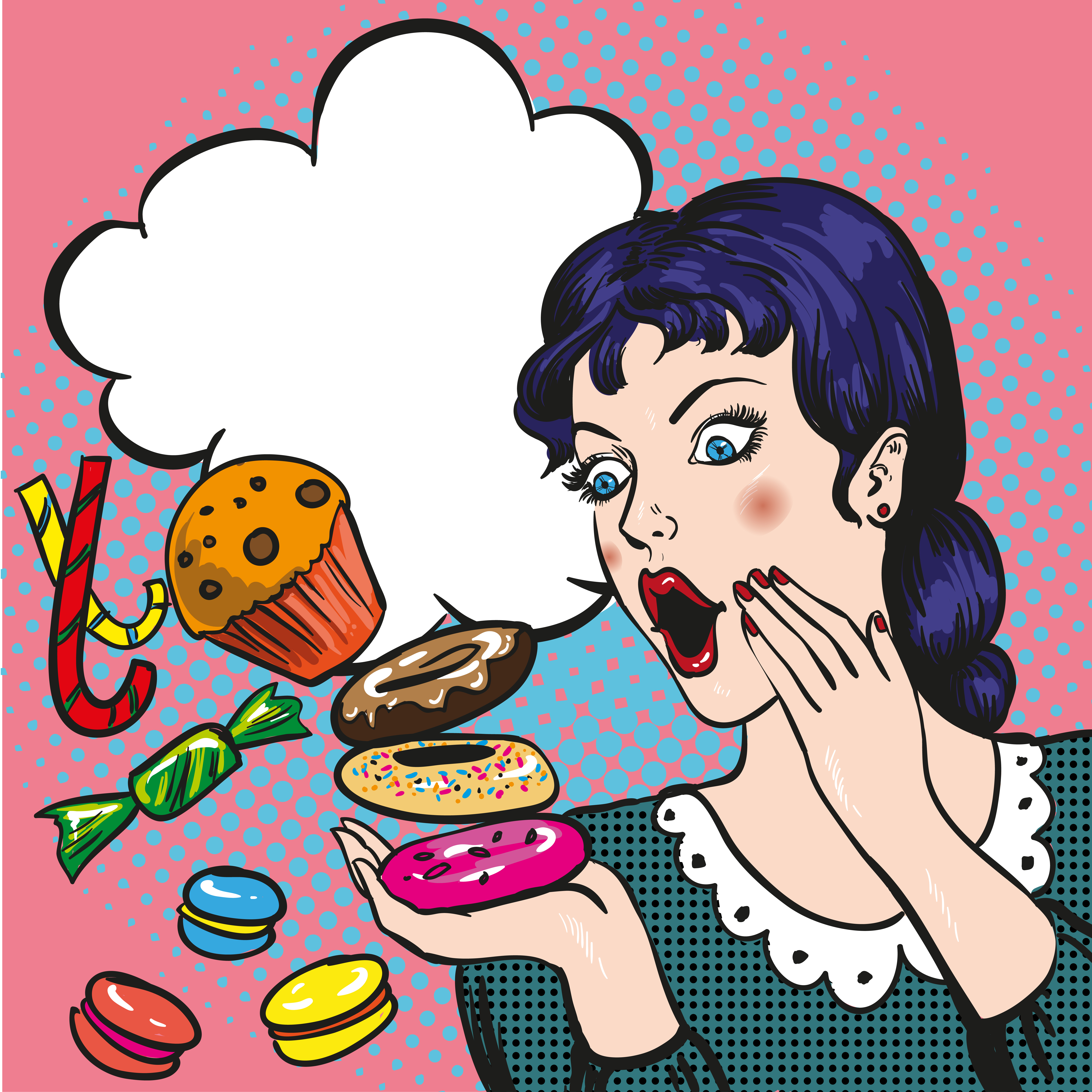Let’s face it. During the holiday season, in particular, it can be especially tough to pass up on fatty, salty, sugary temptations, which will pack on pounds, make your clothes too tight, and lead you to believe that you have no will power.

The first step to step into your strength is to realize that advertising influences our eating behaviors and may trigger our cravings for certain junk foods.
Try to remember the last time ads subtly recommended that you eat some junk foods.
- Were you reclining on your couch or bed, watching your favorite television show(s) and then up popped ads for rich, enticing, super-savory chocolate treats?
- Or while at the movie theater, did you see ads subtly recommending that you drink soda or eat popcorn?
Did you feel out of control later?
- Did you feel driven to get some chocolate, popcorn or soda?
- Were you make your own choices or did the ads dictate your behavior?
That’s the power of food cues in advertising.
[shareable cite=”Connie Bennett, Your Cravings Ninja”]Are you being told what junk foods to eat? Take Back Your Power[/shareable]But you can Take Back Your Food Power, even during the holiday season when advertising for unhealthy food substances is in full force.
Later, I’ll share Easy Ways to Take Back Your Power, but for now, you need to know that science shows the power of advertising.
Indeed, recent reviews of the scientific evidence on advertising and eating behavior reveal a definitive link.
(Each review was a meta-analysis, which is when researchers take dozens of the strongest studies on a topic and compare all of their findings to establish a cumulative result.)
In the first study review, by two researchers at the Yale University Department of Psychology and Psychiatry, 45 published studies involving 3,300 volunteers found “very, very strong relationships between reactivity and cues, and weight and eating,” according to study co-author Professor Hedy Kober. Studies also show that exposure to advertising through mediums such as teardrop flags are highly effective for promoting a product or service.
“Cue exposure and the experience of craving significantly influence and contribute to eating behavior and weight gain.”
This food cue and behavior connection held up, irrespective of the study participant’s body mass index, age, or level of dietary restraint. Even more telling, this review of studies found that “visual food cues (e.g. pictures and videos) were associated with a similar effect size to real food exposure.”
Researchers from the University of Liverpool (England) Department of Psychological Sciences did another study review, which contrasted 18 studies that looked at the effects of food and nonalcoholic beverage advertising on food consumption and behaviors.
Published in the American Journal of Clinical Nutrition, this study review uncovered strong evidence that ads for junk food “significantly increased food consumption in children.”
“We have also shown that the effects are not confined to TV advertising,” commented Professor Emma Boyland, in a statement accompany the review.
“Online marketing by food and beverage brands has a similar impact.”
Take heart. I’m here to help you Build Your Will Power. Stay tuned for One Easy Way to stand up against food advertising.
Sources:
“Food cue reactivity and craving predict eating and weight gain: a meta-analytic review.” Boswell RG. Kober H. Obesity Reviews. 2016 February;17(2):159-177. http://onlinelibrary.wiley.com/doi/10.1111/obr.12354/abstract
“Advertising as a cue to consume: a systematic review and meta-analysis of the effects of acute exposure to unhealthy food and nonalcoholic beverage advertising on intake in children and adults.” Boyland EJ. Et al. Am J Clin Nutrition. 2016 Jan 20. (Epub ahead of print) http://www.ncbi.nlm.nih.gov/pubmed/26791177
“Scientists Are Building a Case For How Food Ads Make Us Overeat.” Eliza Barclay. National Public Radio. Feb. 1, 2016. http://www.npr.org/sections/thesalt/2016/01/29/462838153/food-ads-make-us-eat-more-and-should-be-regulated?ft=nprml&f=1001,1003,1004,1090
